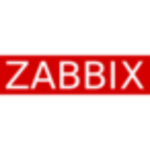What is our primary use case?
Our main use case for Cribl was SIEM migration, where we merged multiple SIEM solutions to a single SIEM solution. SIEM migration was the most major use case we were looking for. The second use case was a manageable logging solution which could have a nice interface and would be easy to manage. Data cutoff or Log Filtering was the third biggest use case we were looking for, where we were seeking data reduction to define what we need and don't need. Additionally, we performed data masking for PII i.e. payments and medical data. These were the main use cases that were all provided by Cribl.
How has it helped my organization?
My previous company did a significant amount of business using Cribl, particularly in servicing customers who had a perfect fit for the solution. From a consultant's perspective, I can say that we resold licenses for Cribl, delivered services related to Cribl, and also provided maintenance services. This brought a decent amount of business to our company.
Regarding the reduction in firewall logs due to Cribl, it did influence our overall data processing and workflow. For example, the AWS VPC flow logs were greatly reduced in size, which had a substantial impact on the licensing costs for destination platforms. It did help us and the customer quite a bit. Cribl's role in its reduction of firewall logs, either cloud or on-prem, was vital.
The data cost is an important aspect. Cribl is specifically designed to reduce the data costs associated with the destination platform. This is one of its core offerings.
Regarding platform usability, the Cribl interface is quite intuitive and easy to use. The navigation and seperate sections are easily accessible, making it very user-friendly. The color scheme and palette are excellent, and there’s nothing messy or unmanaged about the user interface. Overall, I personally find the user interface to be very comforting.
What is most valuable?
The features of Cribl I have found most valuable include its SIEM migration capability. It facilitates migration quite nicely. The data reduction and preprocessing capabilities make Cribl really unique. Data masking is an important one. And as Cribl Stream can be deployed on-prem, on cloud or as a hybrid model, its support for every sort of enterprise estate is highly appreciated.
The UI interface is very good. It's user-friendly, intuitive, not complicated, and sufficient. It's not more than what it needs to be, and it's simple without being overly complicated.
What needs improvement?
They've already done many good things with the product, but perhaps they could implement a temporary SIEM solution where we could store logs and display them as a SIEM, though I think that's not the space that Cribl is actually looking into. Based on my experience, this product is brilliant and there isn't much or anything important lacking in the product.
We encountered some occasional issues with the syslog data stream, particularly when handling large data volume, and getting it to parse and field extracted correctly, but no major alarms that would halt the days operation. There were few source vendor specific challenges, but overall, I didn't notice anything major beyond that. Most of the process went smoothly. However, we did need to carry some troubleshooting to resolve the issues we faced while connecting with other platforms and few data stream miss-behaving, which wasn't a straightforward task for us. In terms of large datasets—whether they originated from network inputs, virtual machines, or cloud instances—ingesting the data into the destination was relatively easy. In summary, aside from the usual difficulties or issues that someone could face with any project, everything else went well.
For how long have I used the solution?
I have been working with Cribl for more than four years now.
What do I think about the stability of the solution?
Cribl is quite stable and doesn't crash; there's no unusual behavior. If it's stable, then it's reliable. I could see the data that goes in and how it is being processed at each stage. There are no concerns when Cribl is working in production environment.
What do I think about the scalability of the solution?
Cribl is quite scalable, as we could add worker nodes as our data grows, so it's sufficiently scalable and able to facilitate as much data as there can be.
How are customer service and support?
Their technical support has been really great, and solution architects we worked with were really knowledgeable. They had extensive expertise with the product and were able to facilitate with everything we needed. The experience with Cribl technical staff has been one of the best.
How would you rate customer service and support?
Which solution did I use previously and why did I switch?
For similar use cases, different companies were using different tactical solutions i.e. custom scripting. None of the solutions were strategic and well thought through. Some were using scripting, some were not utilizing anything. Some were ingesting into the SIEM and then doing all the tasks which should be done pre-ingestion. There was a lot of disorganization, and Cribl had really found the gap where they could offer their services.
How was the initial setup?
I performed the entire setup of the Cribl infrastructure.
With the Cribl Stream setup, I first had to initiate the tenant. Once the tenant was provisioned, I configured IAM setup i.e SSO, RBAC etc. I onboarded the data sources and deployed the worker nodes to the appropriate locations. These locations could be various subnets, cloud virtual machines, on-premises virtual machines, or any ready-to-use Cribl cloud workers we needed. The process depended on the company's IT infrastructure. After the worker nodes were set up, it was simply a matter of onboarding the data stream into the platform and then directing it to the destination platforms.
As for Cribl's deployment, it operates in a hybrid environment, utilizing both cloud and on-premises solutions, tailored to meet the needs of different customers.
What about the implementation team?
I delivered Cribl services as a Certified Cribl Consultant to various customers. Cribl technical support was arranged whenever there was a need for it.
What was our ROI?
We have managed to save significant money and resources for multiple customers, reducing operational complexity and the cost of destination platforms but unfortunately I cannot quote specific numbers due to NDA.
What's my experience with pricing, setup cost, and licensing?
Cribl is very inexpensive, with enterprise pricing around 30 cents per GB, which is really decent. Organizations looking to ingest terabytes or petabytes of data each day find it quite an inexpensive solution. The pricing model for Cribl Stream is one of the best values that customers would be getting, and I don't think any other solution offers this much value at this price point.
Which other solutions did I evaluate?
Confluent was considered, but Cribl emerged as the best solution.
What other advice do I have?
I would rate Cribl an eight out of ten.
Which deployment model are you using for this solution?
Hybrid Cloud
If public cloud, private cloud, or hybrid cloud, which cloud provider do you use?
Disclosure: My company does not have a business relationship with this vendor other than being a customer.




















